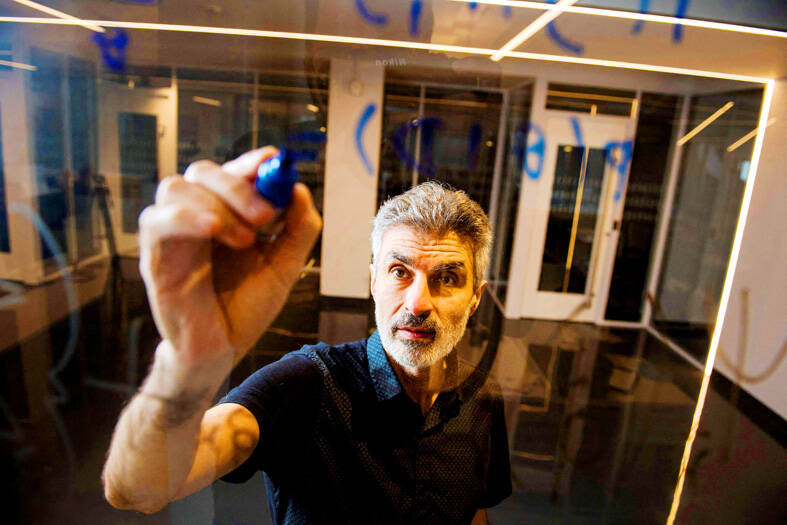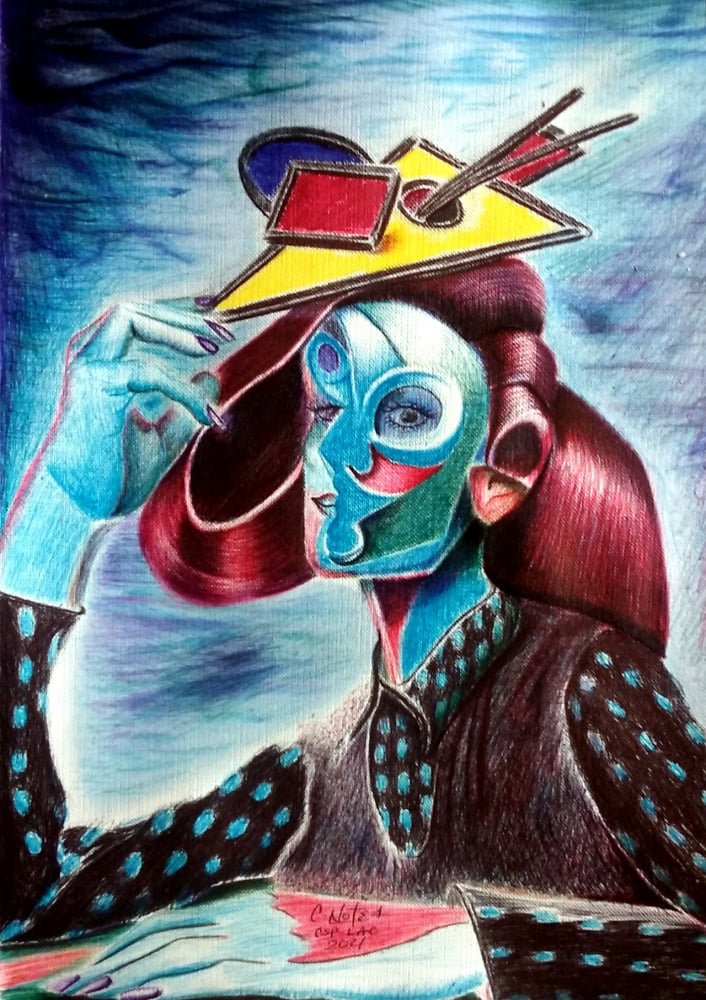-
AFP, MONTREAL
Rapid developments in artificial intelligence (AI) and recent turmoil at industry powerhouse OpenAI Inc have brought fresh attention to a key hub of ethics research related to the technology in Montreal, led by Canadian “godfather of AI” Yoshua Bengio.
Bengio — who in 2018 shared the Turing Award with Geoffrey Hinton and Yann LeCun for their work on deep learning — said that he is worried about the technology leapfrogging human intelligence and capabilities in the not-too-distant future.
The academic said that AI developments are moving at breakneck speed and risk “creating a new species capable of making decisions that harm or even endanger humans.”

Photo: AFP
For some time, Bengio has been warning about companies moving too fast without guardrails, “potentially at the public’s expense.”
It is essential to have “rules that’ll be followed by all companies,” he said.
At a world-first AI summit in the UK early last month, Bengio was tasked with leading a team producing an inaugural report on AI safety.
The aim is to set priorities to inform future work on the security of the cutting-edge technology.
The renowned AI academic has brought together a “critical mass of AI researchers” through his Mila-Quebec Artificial Intelligence Institute research institute, located in a former working-class neighborhood of Montreal.
His neighbors include AI research facilities of US tech giants Microsoft Corp, Meta Platforms Inc, IBM Corp and Google.
“This concentration of experts in artificial intelligence, which is greater than anywhere else in the world,” is what attracted Google, said Hugo Larochelle, the hoodie-wearing scientific director of DeepMind, the Silicon Valley giant’s AI subsidiary.
Early on, these researchers began thinking about the future of AI, and consultations with the public and researchers from all disciplines led in 2018 to a global AI charter called the Montreal Declaration for a Responsible Development of Artificial Intelligence.
“We knew early on that the scientific community needed to think about the integration of AI into society,” said Guillaume Macaux, The International Observatory on the Societal Impacts of AI and Digital Technology (OBVIA) vice president.
Its 220 researchers advise on government policies and raise public awareness of the possible positive effects and negative impacts of this cutting-edge technology.
Artists too are playing a part in “demystifying AI,” says Sandra Rodriguez, who splits her time making art in Montreal and teaching digital media at the prestigious Massachusetts Institute of Technology (MIT) in the US.
Her latest art installation includes a breathtaking futuristic world via a virtual reality (VR) headset, which enables visitors to converse with a bot inspired by US linguist Noam Chomsky.
Voice and text answers to queries appear simultaneously. With the touch of a finger, lists of alternative responses considered by the AI with their associated percentage gradient pop up.
“You quickly realize that it’s actually just an algorithm,” Rodriguez said.
“Montreal is a fantastic playground” for exploring the potential and limits of artificial intelligence, as well as “debating [related] ethical and societal issues,” she said.
Art becomes “necessary more than ever” to invite “a wider public to ask questions about the issues of artificial intelligence which will affect them tomorrow,” Rodriguez said.
Comments will be moderated. Keep comments relevant to the article. Remarks containing abusive and obscene language, personal attacks of any kind or promotion will be removed and the user banned. Final decision will be at the discretion of the Taipei Times.
This post was originally published on this site be sure to check out more of their content.








